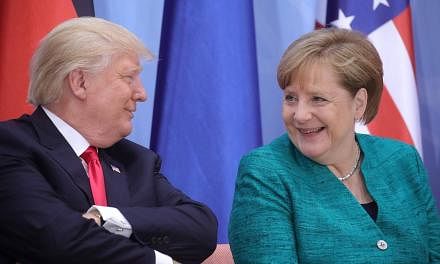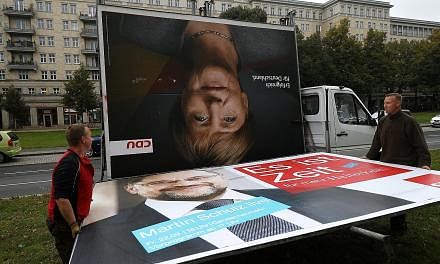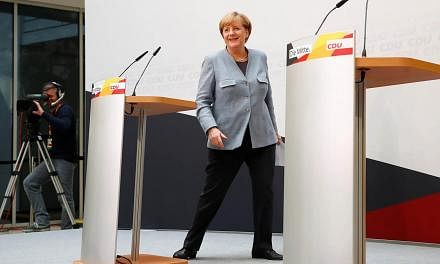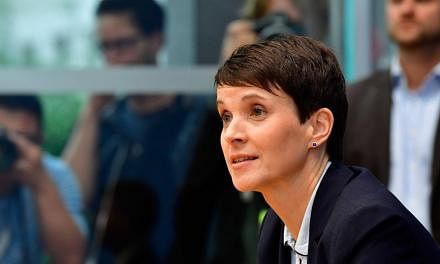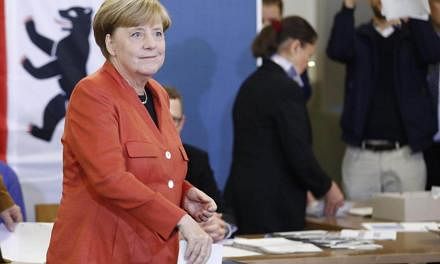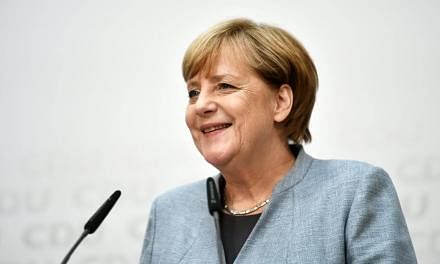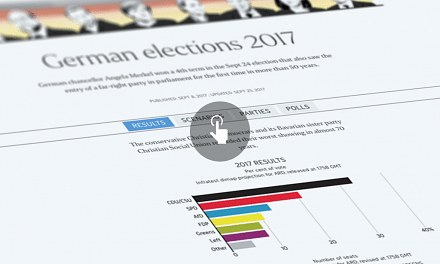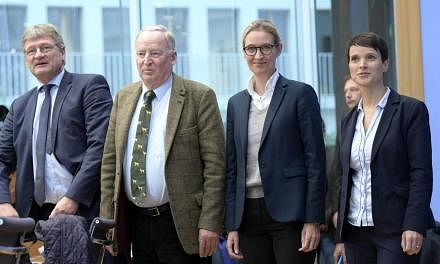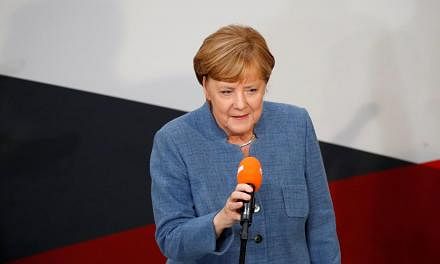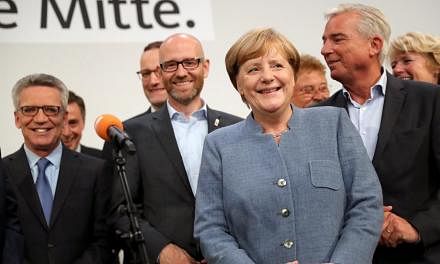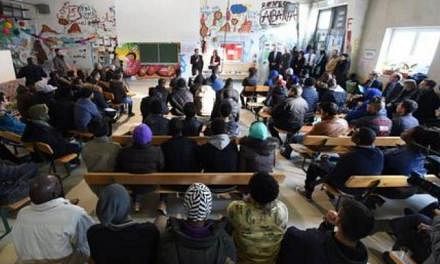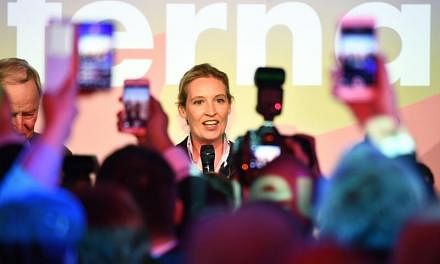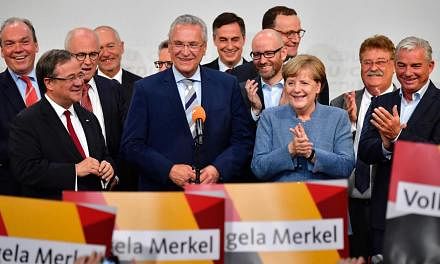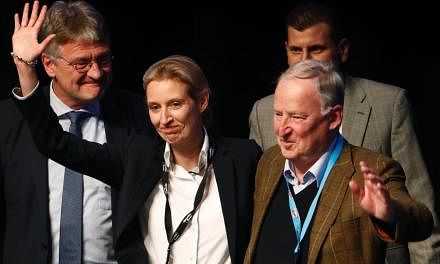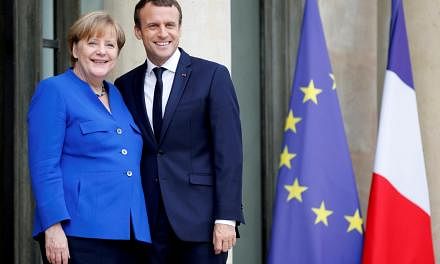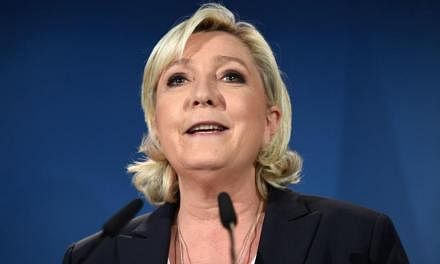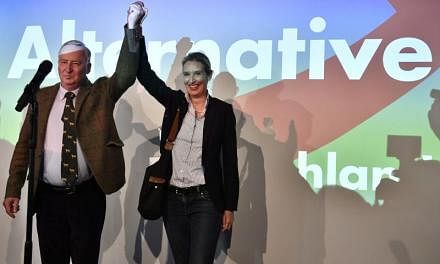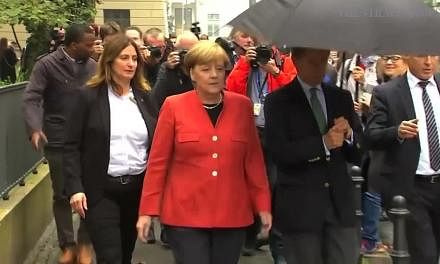Today's summit of heads of state from Europe's German-speaking countries would not, under normal circumstances, attract much attention, if only because the kings, princes, dukes and presidents attending such events are not executive leaders, so what they discuss does not automatically commit their respective governments.
Still, there is heightened relevance to this year's gathering in Luxembourg, which comes immediately after the shocking electoral result in Germany, in which an anti-immigrant, far-right political movement came out of nowhere to become the country's third-largest parliamentary party.
Unsurprisingly, therefore, immigration and the integration of ethnic and religious minorities top the agenda of today's meeting.
The group of German-speaking countries is hardly homogeneous. It includes Germany, Europe's biggest and most populous country, but also Liechtenstein and Luxembourg, Europe's smallest states. Some, like Austria, are member nations of the European Union, while others - such as Switzerland - are not.
And while the German language is officially used in all of them, in Belgium, which is also part of the group, only 1 per cent of the population speaks it as a mother tongue.
Still, the group accounts for around a fifth of Europe's total population and includes some of continent's wealthiest economies.
Although few of the heads of state will admit it publicly, all their countries have been affected by the decision of German Chancellor Angela Merkel back in 2015 to open her country's borders to a wave of refugees fleeing conflicts in the Middle East and further afield.
For countries such as Austria and Switzerland, which were on the pathway of the human tidal wave that followed, the impact of what became known as "Willkommenspolitik" (welcome politics) in the German-speaking world translated into an immediate jump in asylum-seekers. But for all the other nations attending today's summit, the impact was also considerable, by elevating immigration to the status of a critical national issue.
In retrospect, it is now clear that the biggest problem with the 2015 events was not necessarily the numbers involved - although at around one million new immigrants, these were considerable - but more with the impression that some European governments simply abandoned controls of their borders.
"Wir schaffen das" ("we can do it"), the phrase which Chancellor Merkel used at the height of the 2015 immigration crisis, may have made her an instant hero with the world's liberal press, but did her no favours whatsoever in Germany's elections this week. Almost six million Germans - roughly 13 per cent of those voting - rebuked her by opting for the anti-immigrant Alternative for Germany party.
And as the leaders attending today's summit know, they should get ready for another anti-immigrant backlash in Austria, which holds its own general elections on Oct 15, and where the far-right Freedom Party is doing very well. It is predicted to win a quarter of all national votes, just about the same as the currently ruling Austrian Socialists, who may well be pushed from government into a humiliating third place in the next Parliament.
Austria is also an example of another regional phenomenon: the wholesale shift to the right of the entire political spectrum as a result of the immigration debate. The 31-year-old Austrian Foreign Minister Sebastian Kurz, who runs the country's centre-right People's Party and is predicted to become the country's next chancellor, is trying to limit the extremists' appeal by arguing that benefits and social welfare payments to migrants should be cut by half, to around €560 (S$895) per month.
"We must protect our social system from further immigration," says Mr Kurz, ignoring evidence that his proposed payments to migrants fall way below Austria's own poverty threshold.
From Oct 1, a ban on women covering their faces will also come into force in Austria.
And something similar is happening in Switzerland, where bans are in place against the construction of mosque minarets and the government is scrambling to save its privileged trading status with the EU, while still enforcing restrictions on immigration.
All eyes, however, are on Germany, where Chancellor Merkel has vowed to take the sting out of the anti-immigration backlash by "winning back voters" with "with good policies that solve problems".
A full Austrian-style tilt to the political right is probably excluded, but tougher border controls are certainly on the cards.
By sheer coincidence, the presidents of both Germany and Austria, the German world's biggest countries, belong to the centre-left of politics, so they are guaranteed to take a dim view of policies which discriminate against Muslims and other ethnic minorities.
Austrian President Alexander Van der Bellen has already publicly criticised his country's ban on veils.
But the influence of such heads of states is limited. And meanwhile, the political ground is shifting under their feet.

